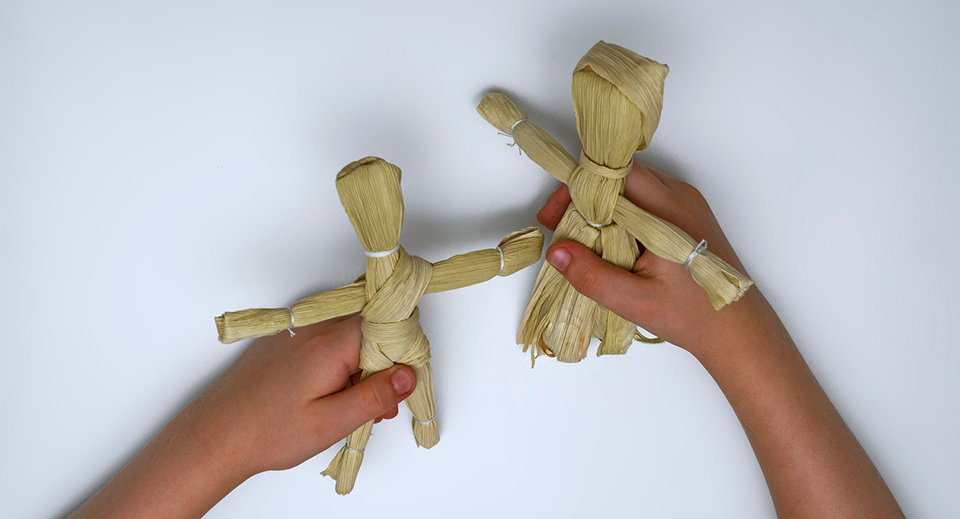We the People Podcast: Native Americans and the Constitution
In celebration of Native American Heritage Month, join experts Maggie Blackhawk of New York University School of Law; Donald Grinde, Jr. of the University at Buffalo and co-author of Exemplar of Liberty: Native America and the Evolution of Democracy; Gregory Dowd of the University of Michigan; and Woody Holton of the University of South Carolina and author of Liberty Is Sweet: The Hidden History of the American Revolution, for a conversation exploring the influence of indigenous people and tribal governments on the U.S. Constitution and American democracy, from before the Revolution to today. Jeffrey Rosen, president and CEO of the National Constitution Center, moderates.
America’s Town Hall: Native Americans, Adoptions, and the Indian Child Welfare Act
In November 2022, the Supreme Court heard oral arguments in Haaland v. Brackeen, a case challenging the Indian Child Welfare Act. Passed by Congress in 1978, ICWA establishes standards for the adoption of Native American children, by stipulating a preference that they be placed with extended family members or other Native American families. Opponents of ICWA say that exceeds Congress’ powers and violates the Equal Protection Clause of the 14th Amendment, by imposing unconstitutional race-based classifications and discriminating against non-Native American foster parents. Defenders of ICWA say the distinctions the law draws between Native and non-Native Americans are political, rather than racial, because tribes are political entities; and that the law helps protect tribal sovereignty and the cultural heritage of Native American children. Timothy Sandefur of the Goldwater Institute’s Scharf-Norton Center for Constitutional Litigation and Elizabeth Reese of Stanford Law join Jeffrey Rosen to recap the arguments in the case and discuss the future of the Indian Child Welfare Act.
Indian Removal Act
Signed into law on May 28, 1830, by President Andrew Jackson, the Removal Act authorized the president to negotiate with Native American tribes for federal territory west of the Mississippi River in exchange for Indian lands within existing state borders. Although some tribes accepted the act, others such as the Cherokees resisted. During the fall and winter of 1838-39, the Cherokee were forcibly removed by the United States government in a march that later became known as the Trail of Tears.
Speech at Vincennes
Tecumseh, a Shawnee leader who was born around 1768, is best known for organizing a confederation of Native nations to combat the settlers flooding into native lands following the Treaty of Fort Wayne, an 1809 agreement made with some nations in the Indiana Territory, requiring the sale of three million acres to the United States government. In a speech to the territorial governor, William Henry Harrison, Tecumseh challenged the treaty, arguing that it was impossible for individual groups to agree to land sales, because the land belonged to Native people collectively. More was at stake than title to the land. Tecumseh was questioning the basic presumption that underlays not just the Treaty of Fort Wayne, but also the U.S. Constitution and all federal policy relating to land and Native people more generally: that the United States exercised sovereignty over all the land within the territorial boundaries it claimed and would incorporate that land as states. Harrison and other federal agents did not just want the title to Native lands; they also wanted to dismantle the territorial basis for Native nations’ claims to a separate existence within the boundaries of the United States. There are many versions of this speech, which was delivered orally; this summary comes from the records of Harrison.
Justice Gorsuch and Native American Law
In June 2023, the Supreme Court handed down two major decisions about Native American law. In Arizona v. Navajo Nation, the Court ruled 5-4 that a treaty did not require the U.S. government to take affirmative steps to secure water for the Navajo Nation; and in Haaland v. Brackeen, the Court upheld the Indian Child Welfare Act (ICWA). In this episode, Native American law experts Professor Marcia Zug of the University of South Carolina Law School and Timothy Sandefur of the Goldwater Institute join to help unpack these key Native American law cases. They also dive more deeply into one specific member of the Court—Justice Neil Gorsuch—and his unique stance toward how the Constitution applies to issues relating to Native American tribes—from his dissent in Haaland, to his majority opinion in the McGirt v. Oklahoma case from 2020, and more. Host Jeffrey Rosen moderates.







